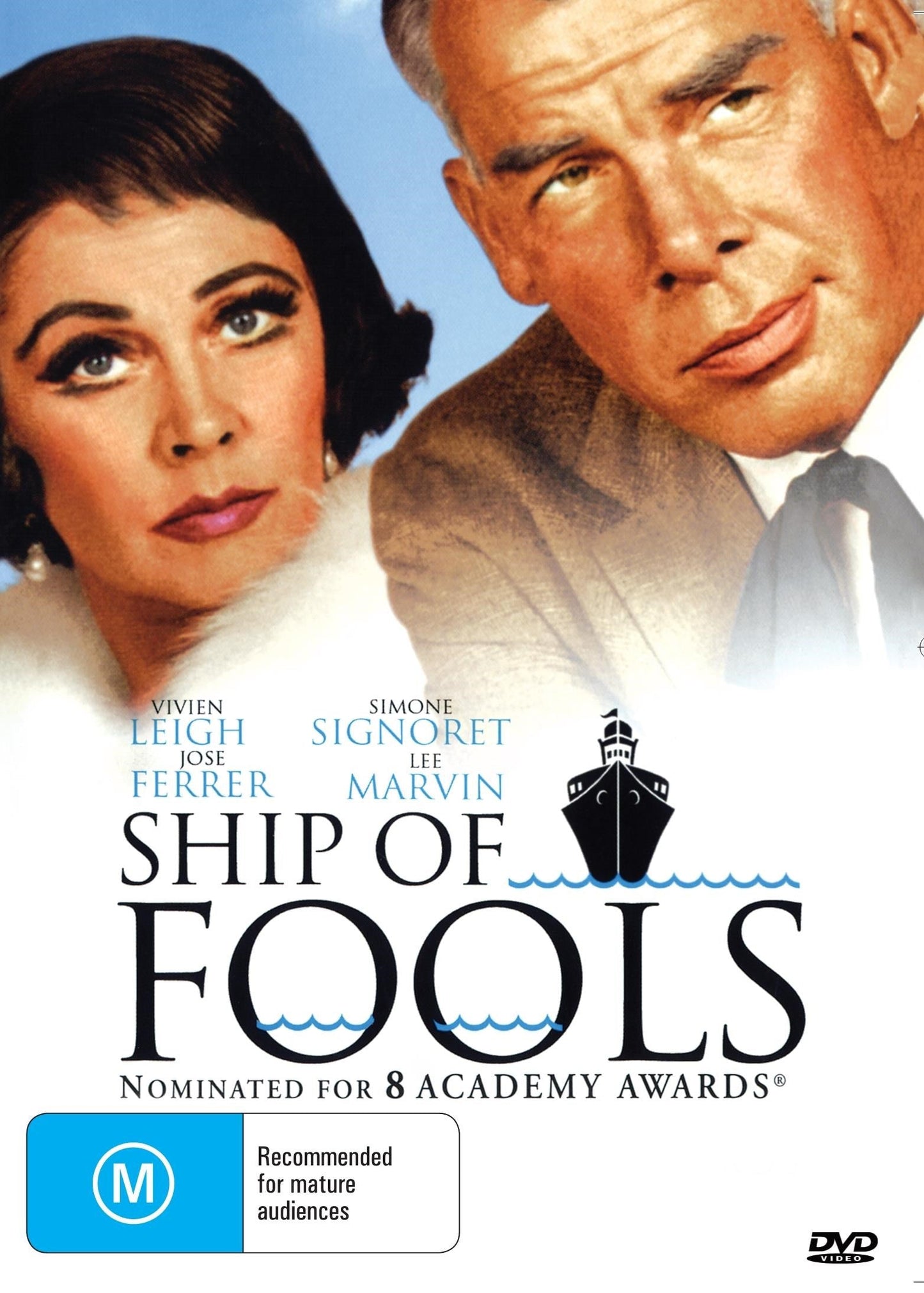“Ship of Fools” it may be, but it is also a Ship of Stars: Oskar Werner, Vivien Leigh, Lee Marvin, Simone Signoret, Jose Ferrer, Elizabeth Ashley, George Segal, and Michael Dunn. Directed by Stanley Kramer, this 1965 film deals with a German ship heading to its port in Bremerhaven in 1933 and the lives of some of its passengers. Dunn speaks to the audience at the beginning and end of the film, telling us at first that it is a ship of fools and that we may find ourselves in some of the characters.
This is one of the best all-star casts ever assembled, right up there with “All About Eve” and “The Long, Hot Summer.” The performances are as magnificent as the film is relentlessly depressing, with a Jewish man put at a table with a dwarf, while at the captain’s table, another man preaches about the new Germany and extermination of Jews, the elderly, and those who are not fit. The optimistic Jew thinks Germany owes the Jews a great deal and vice versa, and with 1 million Jews there, certainly no one is going to kill all of them. A drug-addicted woman is being deported to an island, and the very ill ship’s doctor falls in love with her and is tempted to give up his miserable life to care for her. A couple with a passionate sex life finds they are poles apart in every other way. A bitter, middle-aged woman comes to grips with her loneliness and tries to drink it away. And on and on, on the ship of fools. By the end of the film, looking at the Jew’s beautiful family on the dock, the viewer is ready to reach for a razor blade.
Oskar Werner (Tyrone Power’s son-in-law) gives a magnificent performance as a man discouraged about his life full of obligations, exhausted from ill health, and reaching out for one last chance at happiness. Simone Signoret, who falls for the doctor, is a warm and sympathetic countess, nervous about her future, her past dried up. Lee Marvin, as a southern drunk who wants to get laid, is perfection – Vivien Leigh herself was impressed with him. “What’s this about the Jews?” he asks her. “I never saw a Jew until I was 15.” “Perhaps you were too busy lynching Negroes to care about the Jews,” she replies.
For Vivien Leigh, Scarlett is far behind her – 26 years behind her, in fact, with almost no vestige of her left due to Leigh’s battles with manic-depression and the dissolution of her marriage to Laurence Olivier. As Scarlett herself would have said, “That girl doesn’t exist anymore.” Her character is the Blanche Dubois who didn’t go to the asylum and some years later takes a cruise. Even the last gown she wears, as she dances the Charleston, is reminiscent of Blanche. It’s a great performance as a beautiful woman who has seen better days and is disillusioned and bitter about men, love, and romance. Her big scenes at the end of the film – in the hallway and with Marvin – are fantastic.
I have to believe, though “Ship of Fools” is downbeat, that it leaves us with some hope. Dunn, as the dwarf philosopher, is too smart to stick around Germany once things heat up; perhaps his Jewish friend will see the light before it’s too late. The Countess is a survivor; no reason she shouldn’t survive the island. But for all of them, a certain way of life has ended, and they won’t be going back.
One of the great films of the ’60s.



